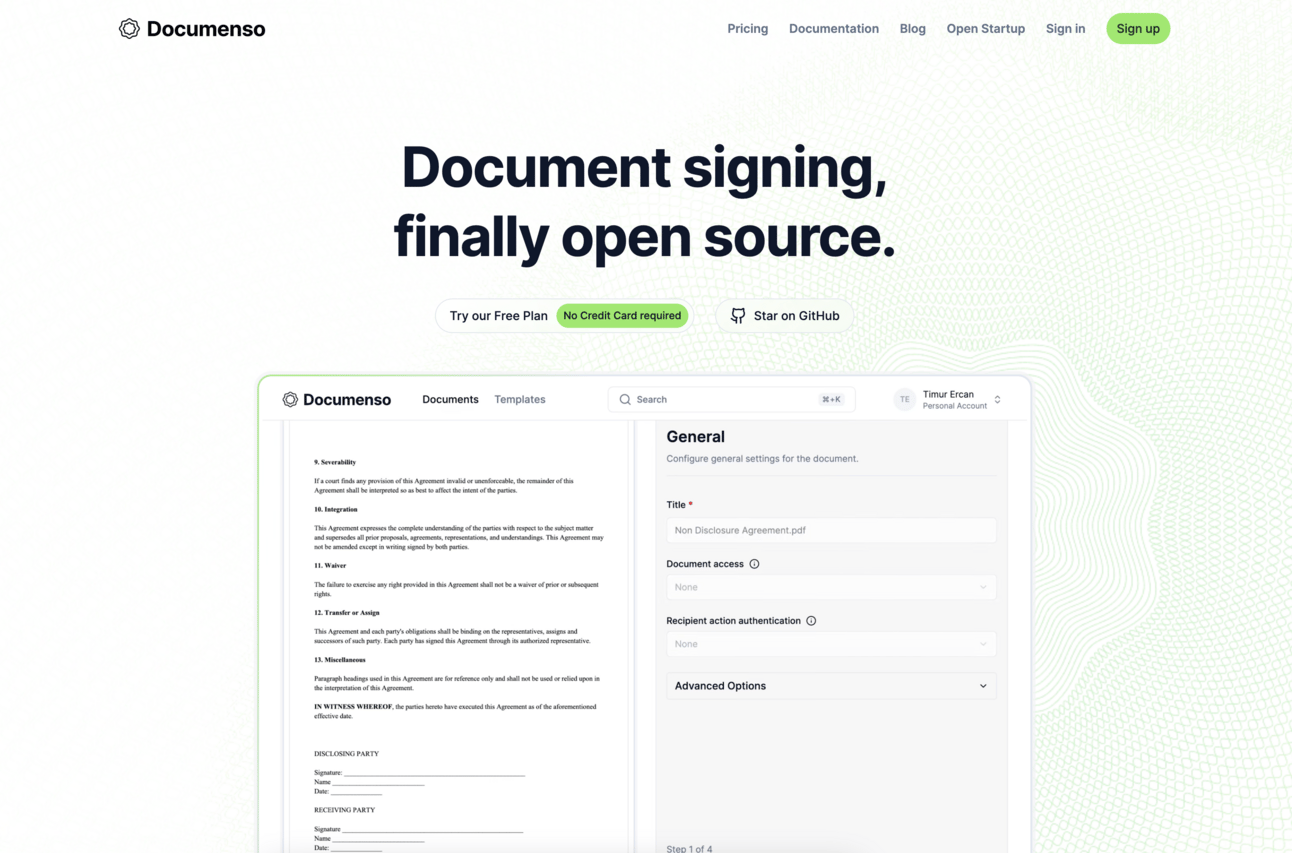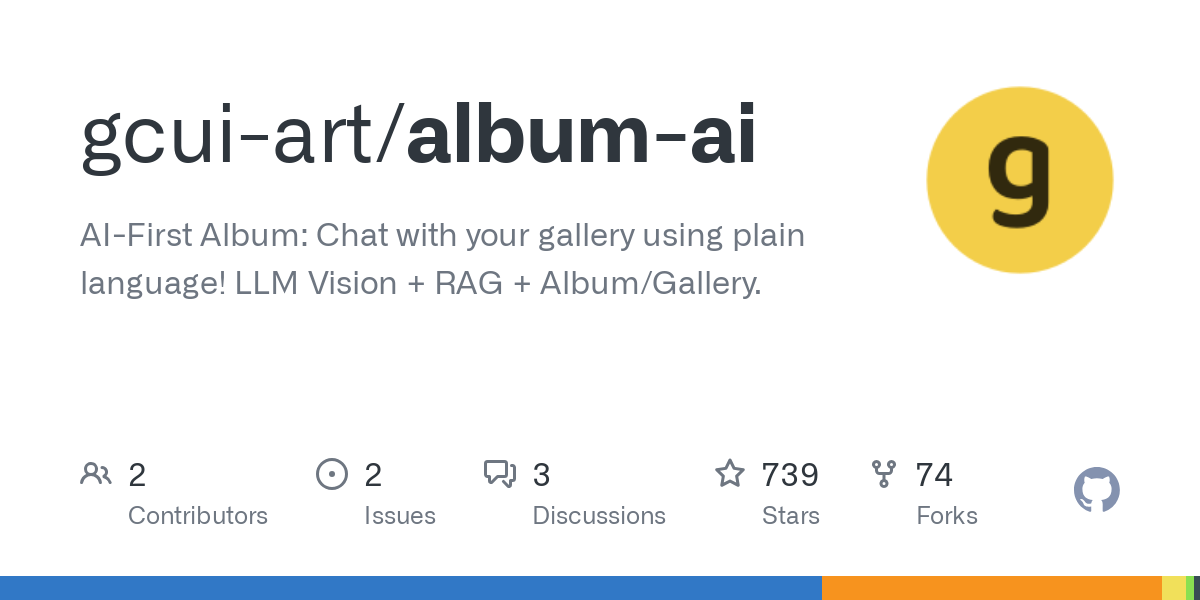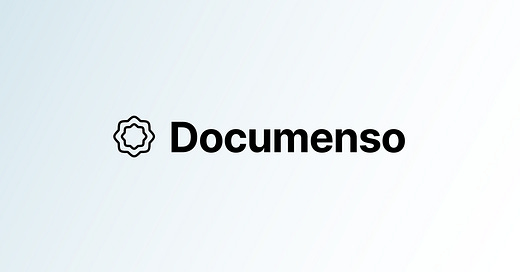Documenso
Open source document signing • New projects including a stack to easily deploy apps on Cloudflare and a tool to chat with your photo gallery • Open vacancies at Cal.com, Canonical, Mozilla, or Mend.io • LLama 3.1: Open Source AI is catching up on Cl
Welcome to Open Pioneers #28 - your weekly update from the forefront of open source. Based on your feedback, I’ve updated the format a little bit. Please let me know what you think about it!
Today, we talk about:
The story behind Documenso, open source document signing
New projects including a stack to easily deploy apps on Cloudflare and a tool to chat with your photo gallery
Open vacancies at Cal.com, Canonical, Mozilla, or Mend.io
LLama 3.1: Open Source AI is catching up on Closed Source AI
Since last week, we welcomed 31 new Open Pioneers. 👋
🎙️ Founder interview
The story behind Documenso, open source document signing

Today we interview Timur Ercan, co-founder of Documenso.
What is Documenso, and what problem is it solving?
Documenso is the world’s open signing framework. It’s the idea of daring to build signing once and for all for all humanity, making it just as available as all open web tech. Since signing is such a core process of every business worldwide, no one should have to decide between using a non-ideal provider or building it from scratch ever again. By building Documenso open source, we want everyone to get the perfect solution for their signing needs, whether self-hosted, hosted by us, or hybrid integration. It also means we listen to the community by design, orienting everything about Documenso on the needs of users and customers, which is sadly not the default in the space.
Documenso is signing as it should have been: Tech-first, Community-Driven, Open Infrastructure that feels amazing.
How did you come to start Documenso?
Ten years ago, when starting my first company, we had to purchase an SSL certificate. At the time, there was no Let’s Encrypt or ready-to-go providers like Vercel. We ended up paying a few hundred dollars for a two-year certificate purchased in one of the worst webshops I had ever seen. What kept bothering me was that we paid for a random number anyone could have generated. Regulation and technical moats allowed the players at the time to do this. SSL Certificates are still sold today, but with Let’s Encrypt providing free certificates to 363M websites, it’s a much more niche market. Having paid that money for what I consider the basic infrastructure of the web that should be open and free bothers me to this day.
When I looked into different spaces for my latest venture, I realized that document signing today is where SSL was ten years ago. Big player dominating the scene, with DocuSign being the biggest (70% market share) by far and producing the most frustration. For me, that's just wrong. Fundamental global tech should be open. Imagine a world where we only had proprietary web tech like Windows Server. The web, as we know it today, would not exist. Also, I have always been intrigued by encryption-powered technologies, since they tend to turn out to be highly socially relevant.
If you could travel back in time, what would you do differently in building Documenso? What are your most surprising learnings as an open source founder?
Since Documenso developed very naturally, there is little I would or could do differently. Launching 0.9, meeting my Co-Founder Lucas through an online code roasting of Documenso, and raising our first money all worked out great. What I unironically would do differently, looking back, is start Documenso even earlier and play even more on the grassroots movement aspect.
What still surprises me today is how much "launch early" holds true. I've never seen so much benefit from doing this as in Documenso. Launching/publishing never brings the downsides you might expect, but there is much more upside than you expect. So, launch early.
Who are 3 open source companies you look up to?
I'm a big fan of Cal.com and its founders, Peer and Bailey. Peer supported this idea long before I spoke the word Documenso for the first time, and was the first angel we had. His view on open-source companies significantly shaped my thinking about what Documenso could and should be.
Supabase is an incredible company. They have a unique way of making their mission "the place to be", which has always intrigued me. But while playing the cool kids online, they have been hyper-focused on building what I consider the best product possible for their domain, progress SQL.
Not exactly a company, but I am in awe of what Let's Encrypt is doing for the Web. They provide SSL certificates for hundreds of millions of websites, which are automated and free. Many need to realize how core to the internet as we know it they are—actual public infrastructure, which is a big inspiration.
Learn more about Documenso: Website | GitHub | X | Discord
🔥 New projects started last week
Deploy full-stack apps on Cloudflare, Chat with your gallery
github.com/Dhravya/cloudflare-saas-stack
AI-First Album: Chat with your gallery using plain language! LLM Vision + RAG + Album/Gallery/.

💼 Open source jobs
Work for Cal.com, Canonical, Mozilla, or Mend.io
Senior Full-Stack Engineer, Platform (Remote) at Cal.com Apply
Linux Kernel Engineer (Remote) at Canonical Apply
Director of UX Design, Mobile & Ecosystem (Remote, Canada) at Mozilla Apply
Code Analysis Algorithms Developer (Kraków, Poland) at Mend.io Apply
If you’d like your job postings to be listed, fill out this form (100% free).
🔭 Open source social monitor
LLama 3.1: Open Source AI is catching up
Powered by Octolens, AI-powered social listening. Easily monitor keyword mentions on platforms like X, Reddit, DEV, HackerNews or LinkedIn.
Use coupon OPENPIONEERS to get your first month for free.
I made the closed-source vs. open-weight models figure for this moment.
— Maxime Labonne @ ICML (@maximelabonne)
7:12 AM • Jul 24, 2024
📚 More open source content
What I enjoyed reading last week
Mark Zuckerberg: Open Source AI Is the Path Forward Link
Switzerland now requires all government software to be open source Link
How to maintain code for a century: Just add Rust Link
Netflix Open-Sources its Secret Sauce to Meet The Demands Of its Platform Link
Until next week,
Jonathan (@jonathimer)
10,000 people are reading this newsletter every week.
You don’t have to be an experienced writer to start a newsletter. I definitely wasn’t. But running a weekly newsletter is one of the fastest ways to become better at writing and build an audience.
Beehiiv is the best platform for sending newsletters.
Affiliate link: If you end up choosing Beehiiv to start your newsletter, you will support Open Pioneers with a small commission.




